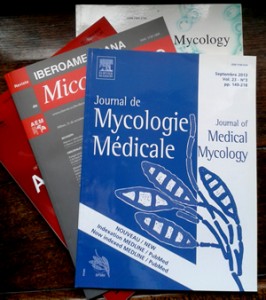The first study to present detailed, systematically collected data and rigorously quantify funding, related to mycology research investments made to UK institutions from 1997-2010, has just been published in the BMJ Open Journal by Head et al. The results highlight clear gaps in the UK research portfolio and illustrate some priority areas for funders and policymakers.

Of 6165 funded ‘infection’ studies, 171 studies related to mycology (total investment £48.4 million, 1.9% of all infection research, with mean annual funding £3.5 million). Studies related to global health represented 5.1% of this funding (£2.4 million, compared with 35.6% of all infectious diseases).
Leading funders were the Biotechnology and Biological Sciences Research Council (£14.8 million, 30.5%) and Wellcome Trust (£12.0 million, 24.7%). Preclinical studies received £42.2 million (87.3%), with clinical trials, intervention studies and implementation research in total receiving £6.2 million (12.7%). By institution, University of Aberdeen received most funding (£16.9 million, 35%). Studies investigating antifungal resistance received £1.5 million (3.2%).
The study concluded that despite the substantial burden of fungal disease globally, there was very little translation of preclinical research into clinical trials, nor implementation research. Few UK institutions carry out any significant amount of mycology research at all. In the context of global health and high burden of disease in poor countries – more investment into mycology research is required. It follows publication of other mycology funding data in December 2102; the total spent over the last 5 years on immunology and infectious disease research by the Wellcome Trust, the UK Medical Research Council, and the US National Institutes of Health was only 1.4 to 2.5%.
Reading : Hidden killers Brown et al.